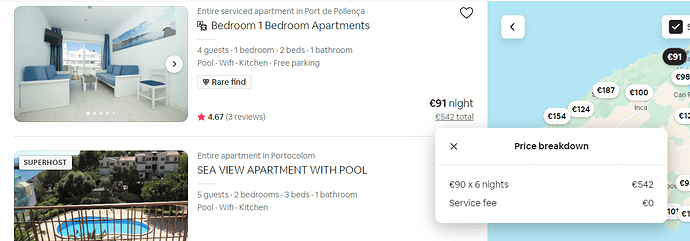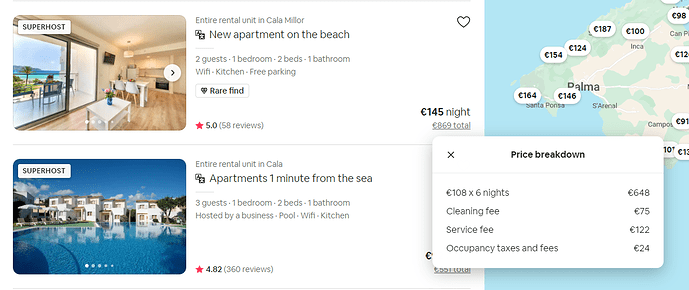Ok, you win.
But back to the original point: other platforms charge the host the entire commission. In fact, the others we’re listed on charge 20%, not 15%. We pay iva on that too. But it’s just a cost of doing business. And in the macro view, insignificant.
Navigating two different models creates additional problems, such as those I previously mentioned.
But there’s other problems with Airbnb’s models too. For example, we have a very different market here from summer to winter. In summer, you can have a flat rate for the entire villa, and it will be fully booked at full rate, guaranteed. We accommodate 8 pax.
In winter, it’s a very different demographic. Typically 6 or fewer pax, often just a couple wanting to take a week away from the cold North and go golfing or hiking or cycling…
The problem is this:
If we charge flat rate on the basis of 8 pax, we’ll be largely priced out of market in winter. However, if we reduce-priced our flat rate to attract 2-4 pax groups, we’d certainly be booked all winter with 8 pax, because it would be just too cheap to resist.
Conversely, if we charged on a per person basis in summer, we’d be booked all summer for 2 pax at 25% of our full rate.
So we need two models on a seasonal basis. Flat rate in summer, per pax in winter. Airbnb doesn’t allow the different models on a single listing (but others do). I’ve been begging Airbnb for this for years, to no avail.
So, we had to create separate listings for summer and winter. Winter is blocked all summer, and summer is blocked all winter.
Good solution, you say? Well, now we can’t calendar sync both listings with other platforms, because the other platforms will be eternally blocked. So we have to do it manually. And that’s a big pain in the arse. And in certain months when everybody’s booking their Mallorca holidays, double bookings are a real risk. Have to be really on top of it. One hour lag can end up getting double booked.
So, as an expert in these things, what would you suggest?




